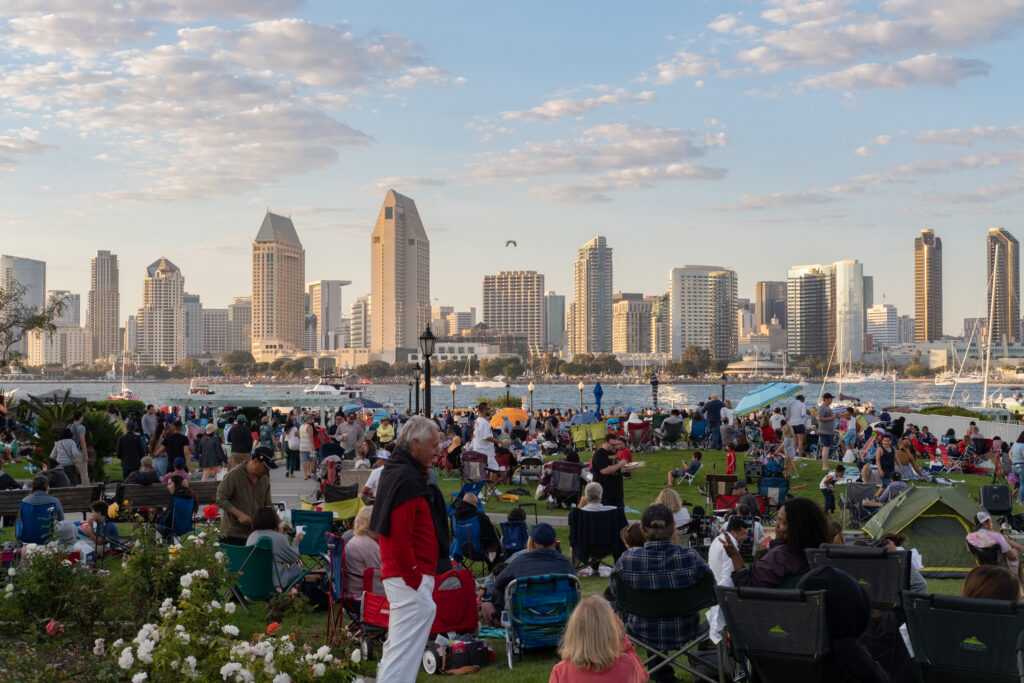
Coronado is making changes to the way its community grants are appropriated in an effort to better balance the way funding is allocated among various nonprofits.
Each year, the city awards grants to local nonprofits in the following categories: arts and culture, community pride, economic development, and social services. In 2023, the city awarded about $1 million in funding to 36 programs across 23 organizations.
This year, the city will cap funding at $125,000 per organization, a reduction from the past cap of $150,000, in effort to reduce the discrepancy between funds requested and available. The Coronado City Council unanimously approved this and several other changes to the grant program at its Feb. 6 meeting.
City staff suggested a cap per organization of between $100,000 and $120,000, but Councilmember John Duncan cautioned against lowering the cap too quickly, saying that a sudden decrease to last year’s top funding recipient, Safe Harbor Coronado, might threaten its ability to serve the community.
Safe Harbor, which provides mental health services to the city’s youth and families, received $134,396 last year. It is not yet known how much the organization will apply for this year, but Duncan said establishing a cap of $125,000 this year, even if a lower cap came in later years, would be less of a jolt to the nonprofit than dropping the maximum funding award to $100,000 on short notice.
“I think philosophically, we’ve always had a little bit of a problem defining exactly what our goal is with the grant program,” Duncan said. “Is it more of a community grant program to get things started up or to help out nonprofits when they have a little issue? Or is it more for sustaining what we think are some of the best events in our town and our best organizations that otherwise might not function without a substantial amount of money?”
He pointed to the Coronado Fourth of July, which received just under $100,000 in funding last year, as another example, saying he doubted anyone would want to cancel the city’s annual parade.
Safe Harbor was the only nonprofit awarded more than $125,000 last year.
In another change, the city will also begin appropriations with a baseline division of 25% of available funding per available category, although it will be up to the council’s discretion to adjust the division based on applications received.
The change is meant to better balance which categories receive funding. Last year, the City Council worried that too much funding was going toward arts.
However, economic development, which received just 18% of last year’s funding, receives fewer applications than other categories, city staff says. The other three categories received about 27% of funding each, with arts and culture raking in the most money.
Grant applications will also now include a question asking organizations to explain how they used the prior year’s funding, if applicable, in effort to facilitate better reporting and assess the grants’ effectiveness.
A final change attempts to address discrepancies in scores by grant readers. Currently, each application is read and scored out of 100 possible points by three independent, anonymous grant readers. Any application with an average score under 75 is ineligible for funding.
A problem arises when exceptionally high or low scores by a single reader skews an application’s overall score. To rectify this, the city will facilitate discussions between grant readers when large variances in scores occur.
In 2023, 18 applications were disqualified by their scores. Emerald Keepers, a nonprofit devoted to protecting the environment in Coronado, was one, earning an average score of 74. (Its three scores were 95, 80, and 47.) Council last year regarded this disqualification as a mistake and ultimately allocated $38,425 for the nonprofit despite its disqualifying score.
Emerald Keepers is also illustrative of another issue: The four categories are not all-encompassing. A nonprofit focused on environmental issues does not clearly fall into one of them, and often, organizations will apply for funding in more than one category. Council considered, but opted against, limiting nonprofits to only one category.
City staff suggested changing the “social services” name to “community services,” but Councilmember Carrie Downey questioned whether the name change would further confuse the issue and invite even more applicants to that category.
“We know that the smart applicants figure out how to take some of their programs and put them in more than one of the buckets,” Downey said. “And if we change the term from ‘social services’ to ‘community services,’ all the things competing with the arts grants are suddenly going to become a community service – we know that’s going to happen.”
Council decided that she and Councilmember Mike Donovan work together to address that issue and bring it to the council at a later date. Whatever they decide, it will not apply to this year’s grants.
Grant applications open Feb. 15 and close March 31.




